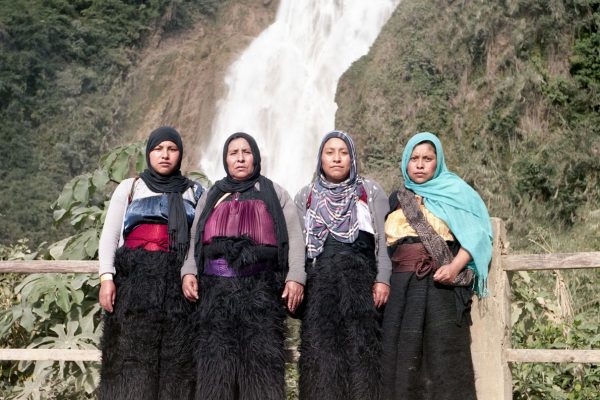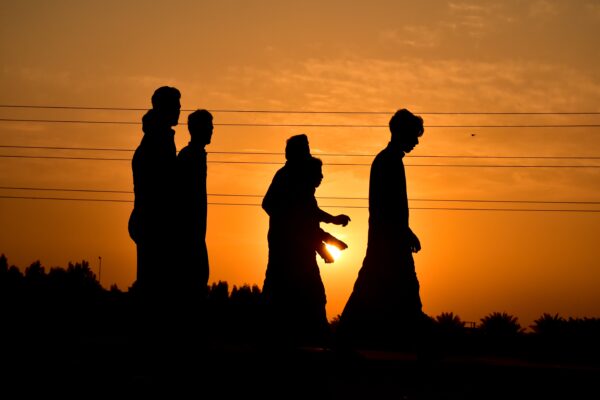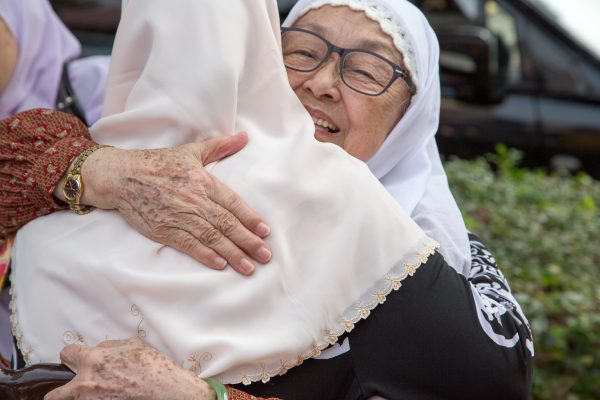“After greeting me, or sometimes before, fellow Muslims usually ask: ‘Where are you from?’ My response is always, ‘here.'”
“After greeting me, or sometimes before, fellow Muslims usually ask: ‘Where are you from?’ My response is always, ‘here.'”
After greeting me, or sometimes before, fellow Muslims usually ask: Where are you from?
My response is always, here.
That response must not be what they are looking for because they are always left confused or uninterested in further conversation. I guess there is a wrong answer to the question.
When I am in the masjid and hear people refer to “back home” I sit there blankly. Sure, I’m West Indian, but that identity does seem to give me any standing in those settings. Unlike others, my relationship to the island of my family is not, in my mind, fundamentally tied up with my Islam. I began to feel that I was missing out on a part of being Muslim because I didn’t have a “home” in the way other Muslims spoke of home. For them, home provided them with legitimacy, authority, and community. My “back home”—if I had one—did not have the same kind of power.
This feeling of homelessness has upset me ever since I was a child. My sense of belonging felt deeply threatened. I would ask myself, why is it that I don’t have this “home” everyone talks about? What did I do wrong to be denied a home? Every Muslim community I found myself in was a house without a home for me. Each one was so reliant on this idea of “back home.” My sense of being foreign and somehow less worthy in those spaces was something I could not bear. So I distanced myself because I knew when they spoke they weren’t talking to me or about me.
Rather, they spoke in a way that only those with a shared home could relate to. In their minds– and increasingly in mine– their closest thing to home was Islam, and I wondered if I could compete with that kind of “authentic” connection to religion. Around Eid, I especially felt incredibly alone; watching from Facebook the fuller Muslims celebrate Eid with their large families and communities, all of whom shared the same “back home.”
For some people, they find Islam through their “homes”. They have a place to go back to and a language for that place, that is familiar, but for those of us that don’t have this, we don’t know where to go when trying to revive our imaan or when trying to get back in touch with our practice. The masjids I enter don’t seem like they belong to me and “community” events make me feel even more excluded. I’ll admit that sometimes there’s a blessing in this because I get to experience Islam organically.
There’s no particular opinion dictating my experience besides my own and there’s room to explore. But there are moments when you want to share these discoveries, I see people talk about words like “community”, “sisterhood” and “ummah” but they all seem so foreign, like another part of Islam or even the world I can’t access with having the proper home. When I would explain this feeling of loneliness, people would tell me to go to mosques or certain programs but it didn’t work. Those spaces only accentuated my feeling of otherness.
I didn’t have much community support when I started wearing hijab because no one saw me in them; there was no language or background to connect us besides the fact that we were both Muslim. My personal evolution felt less valuable, less weighty than others.
I’m not saying forget about your home for the convenience of those of us who don’t have one, but be sensitive towards us.
We exist and a lot of us are hurting.
For some of us, Islam is all we have, and this feeling of homelessness doesn’t help us in our faith or in our social development as Muslims.
This article was written by Mikel Aki’lah Jones and was originally published here.





